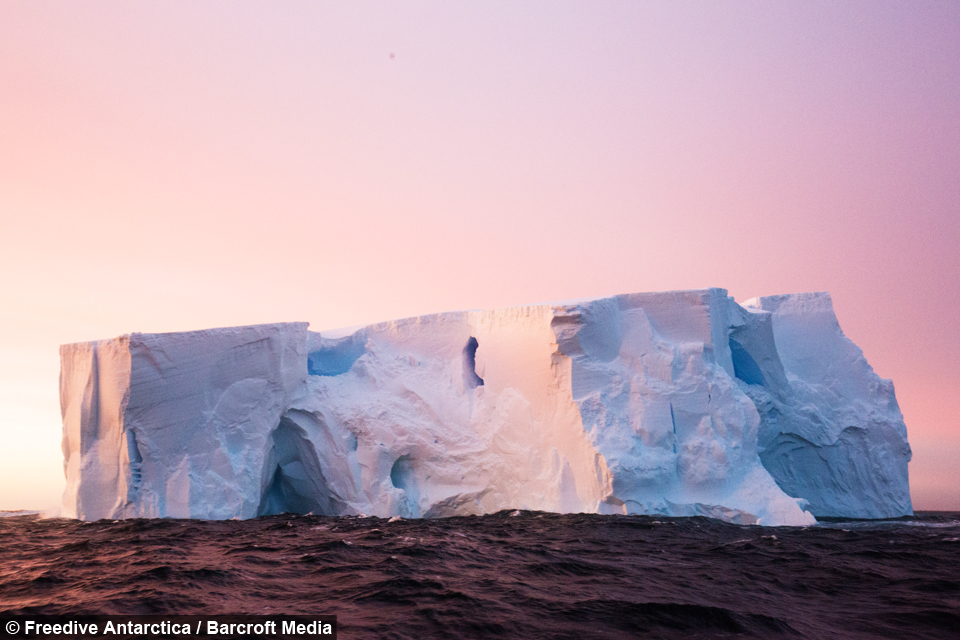Chill Seekers: Freediving In Antarctica
By Hannah Partos
Scroll down for the full story
Videographer / director: Freedive Antarctica
Producer: Mark Hodge, Nick Johnson
Editor: Ian Phillips
Will Glendinning, 40, made the treacherous journey to the planet's most southerly continent with friend Dave Crump and four other crew members.
Freediving involves going underwater without breathing equipment and relies on the diver’s ability to hold their breath for minutes at a time.
Classed as an extreme sport, it is especially dangerous in the Southern Ocean, with icebergs “the size of small countries” threatening to collapse and crush divers beneath their weight.
As a result, only around 10 people are known to have gone freediving in Antarctica.
Will and his team embarked on a three-week expedition in February in a specially-designed boat with a steel hull built for exploring polar waters.
"Of course there are risks,” Will said. “But it’s a spectacular way to explore such a beautiful, remote place. You can reach spaces, caves and tunnels that might be impossible with a lot of equipment strapped on.”
The crew set off from Cape Horn and reached Antarctica’s Marguerite Bay six days later, navigating the last reach of their journey in a twilight fog which left them unable to see anything more than 1-2 metres in front of them.
But the magnificent views in daylight made the difficult journey worthwhile.
Will said: “The scale of Antarctica is phenomenal. With there being no trees or buildings anywhere, getting a sense of scale is tricky.
“What looks like cliffs towering above you just a few hundred metres away are in fact a couple of miles away.”
Will and his fellow divers had hoped to get a close look at marine wildlife on their diving trips, but Antarctica’s summer plankton blooms reduced the underwater visibility – meaning at times they struggled to see anything.
He added: “Even just ten metres down, it was like floating in soup.”
Luckily the divers and the rest of the crew were able to observe wildlife above the water, including seals relaxing on icebergs and thousands of penguins. And the beneath the surface, they were able to dive amongst beautiful caves and explore giant ice formations.
In Antarctica’s Wilhelmina Bay, the team seized the chance to swim with humpback whales, which appeared like ‘tiny dots’ next to the vast icebergs.
Will, who spent a year training for the trip freediving in Iceland, said the experience of being so close to the stunning landscape was “breathtaking”.
“I’ve always wanted to go to Antarctica,” he added.
“I have a natural affinity with water – I’m much happier in water than on land. Freediving in a place that is made of water was a pilgrimage worth making.”











